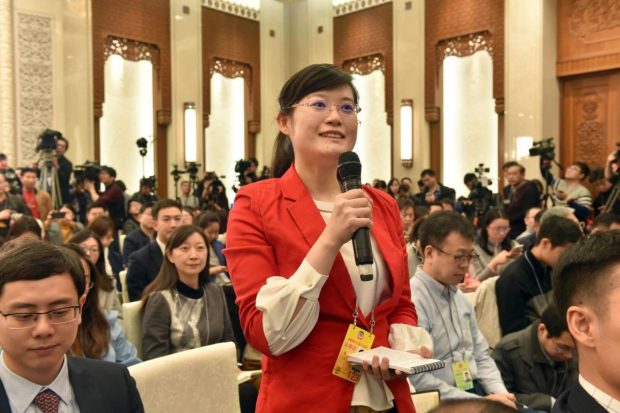China kicks off annual political season to discuss new missions
China’s annual political season is underway with the commencement of the “two sessions” as the first session of the 13th National Committee of the Chinese People’s Political Consultative Conference (CPPCC) convened on last Saturday, and the first session of the 13th National People’s Congress (NPC) which begins on Monday.
The annual sessions of the top legislature and top political advisory body are among the most important political events for the country, during which major tasks for the year are arranged.
The People’s Congress system is the fundamental political system of China. According to the Constitution, the National People’s Congress and the local people’s congresses at various levels are the organs through which the people exercise state power.
The National People’s Congress and the local people’s congresses at various levels are constituted through democratic elections. They are responsible to the people and subject to their supervision. This year, a total of 2,980 deputies to the 13th NPC were elected from 35 electoral units across the country.
The National People’s Congress is the highest organ of state power. Its permanent body is the Standing Committee of the National People’s Congress. The National People’s Congress and its Standing Committee exercise the legislative power of the State.
The State Council is responsible to and reports its work to the National People’s Congress or, when the National People’s Congress is not in session, to its Standing Committee, China’s Constitution states.
The CPPCC is an organization in the patriotic united front of the Chinese people, serving as an important organ for multiparty cooperation and political consultation under the leadership of the Communist Party of China (CPC), and an important means of promoting socialist democracy in China’s political activities.
The main functions of the CPPCC are to conduct political consultation, exercise democratic supervision and participate in the discussion and the handling of state affairs. CPPCC members are selected through consultation and recommendation.
The system of the multi-party cooperation and political consultation led by the CPC will exist and develop for a long time to come, according to the Constitution.
Having a broad social basis, the CPPCC consists of representatives of the CPC and non-Communist parties, personages without party affiliation, and representatives of people’s organizations, ethnic minorities and various social strata.
It also counts as members representatives of compatriots of the Hong Kong Special Administrative Region, Macao Special Administrative Region and Taiwan, returned overseas Chinese, and specially invited people. The 13th CPPCC National Committee has 2,158 members coming from all walks of life.
The 19th National Congress of the CPC held last October set Xi Jinping Thought on Socialism with Chinese Characteristics for a New Era as the guiding thought that must be upheld long term by all Party members.
The Congress also drew a grand picture for securing a decisive victory in building a moderately prosperous society in all respects and moving on to all-out efforts to build a great modern socialist country.
As 2018 is the first year to comprehensively implement the spirit of the 19th National Congress, this year’s annual “two sessions” are of great significance.
This year also marks the 40th anniversary of China’s reform and opening up, and a key year to secure a decisive victory in building a moderately prosperous society in all respects and carry forward the 13th Five-Year Plan, the country’s economic and social roadmap for 2016 to 2020.
New leadership of state organizations and the CPPCC Central Committee will be elected during the “two sessions”. During the sessions of the 13th NPC, deputies will pledge allegiance to the Constitution, and new amendments to the Constitution will be discussed and reviewed at the first plenary session of the 13th NPC on March 5, providing strong constitutional support to a new era of socialism with Chinese characteristics.
The first plenary session of the 13th NPC will also discuss and review the draft of the National Supervision Law, realizing national anti-corruption legislation. In addition, reform of state institutions and goals for China’s economic and social development are also important issues on the agenda of the “two sessions”.

A People’s Daily journalist raises a question to spokesperson Wang Guoqing at the press conference of the first session of the 13th National Committee of the Chinese People’s Political Consultative Conference (CPPCC), March 2, 2018. (Photo by Lei Sheng from People’s Daily)
By Huan Xiang from People’s Daily





















































